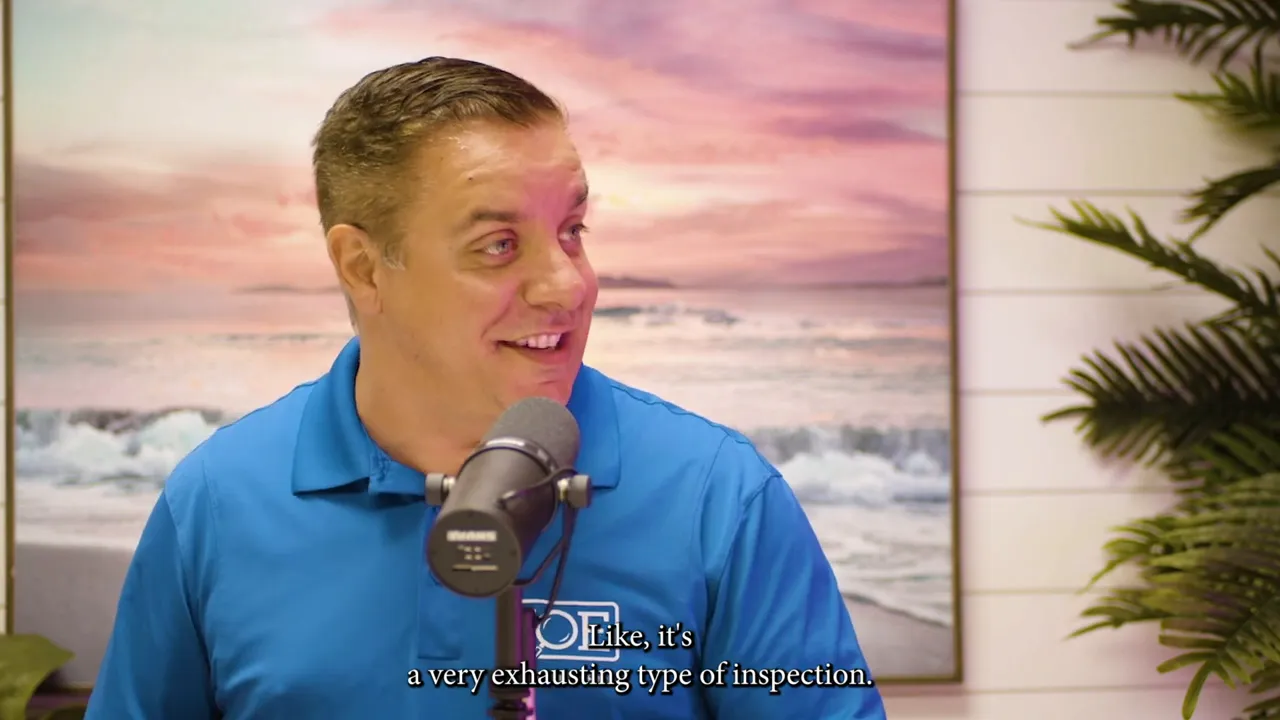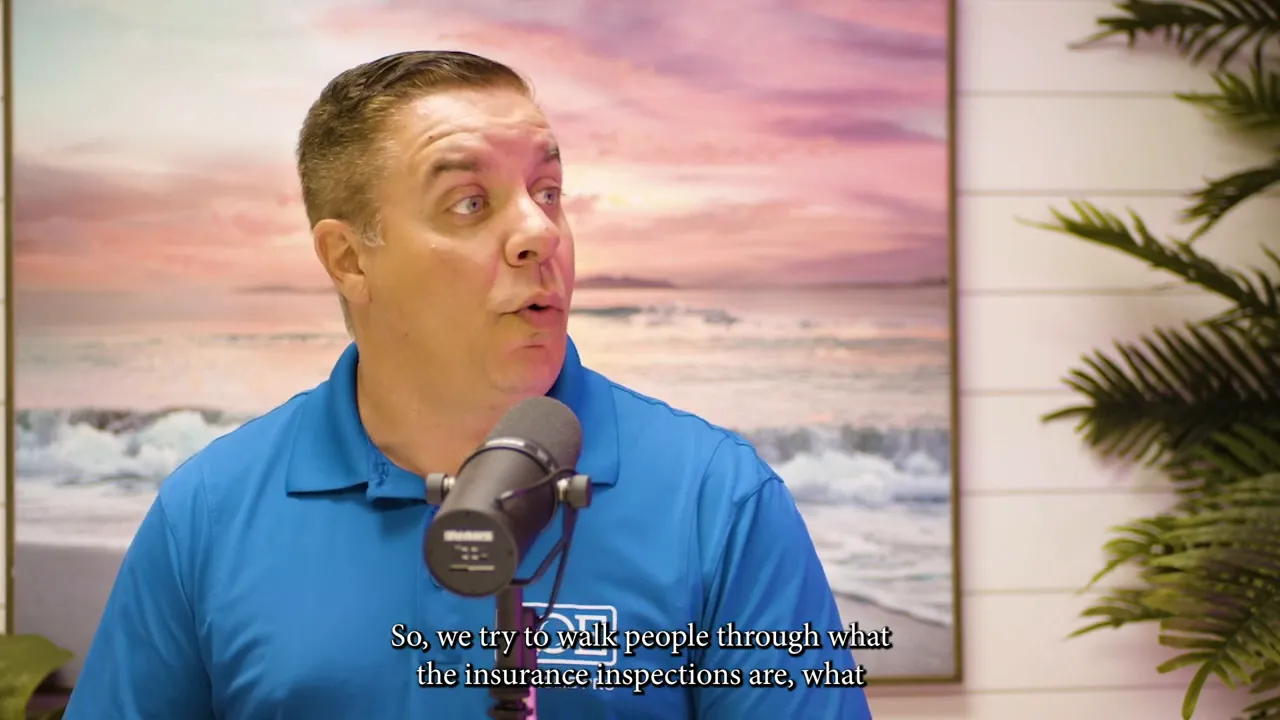
In a practical and friendly conversation, Mary Bartos of The Bartos Group sits down with Joe, known as “The Home Pro,” to demystify home inspections and explain what every buyer needs to know before closing. This article summarizes their expert guidance, expands on key points, and offers actionable advice for buyers and homeowners navigating inspections in Southwest Florida and beyond.

Mary opens the discussion by sharing a personal experience that underscores why thorough inspections matter. She recalls buying a home where the inspection company later went out of business and failed to point out important issues. Her story sets the tone: inspections are not just a formality — they are a critical step in protecting a major investment.
Why Inspections Matter
Joe explains that many people underestimate the breadth and value of a professional inspection. A general inspection is not a quick walkthrough; it’s a systematic evaluation of the major systems and visible structure of a home. For buyers, inspections provide a factual, documented baseline of the home’s condition before they finalize the purchase. For sellers, inspections can identify issues to address in advance or to price appropriately.
“It’s your proof — it’s your air conditioning, your electrical, your plumbing, your attic, your garage, windows, doors, pool equipment, kitchen, bedrooms, bathrooms.” — Joe, The Home Pro

What a General Inspection Covers
A quality general inspection touches nearly every component a buyer will rely on in daily life. According to Joe, a thorough inspection includes:
- Heating, ventilation, and air conditioning (HVAC) systems
- Electrical systems, outlets, and panel condition
- Plumbing systems, visible piping, and fixtures
- Roof and attic access, insulation, and signs of water intrusion
- Exterior elements: siding, windows, doors, and garage
- Interior rooms: kitchens, bathrooms, and living spaces
- Pool equipment and visible pool conditions (when applicable)
- Visible foundation, crawlspace, and structural components
Joe describes the inspection as “exhausting” in the best sense — it covers the gamut so buyers know what they’re purchasing and can plan for repairs, maintenance, or negotiations.
Specialty Tests that Matter in Southwest Florida
Living in Southwest Florida introduces additional considerations beyond the standard general inspection. Joe highlights two specialty areas that are particularly important for buyers in this region:
- Mold and air quality testing: Due to the humid climate, mold can be a hidden but serious issue. Joe advocates strongly for mold and air quality testing, saying, “there’s no way I would buy a home without doing a mold and air quality test.” Samples are taken on-site and sent to a lab, often yielding results within 24 hours.
- Insurance-related inspections: Florida’s exposure to hurricanes and severe weather means insurance carriers often require additional inspections — from four-point inspections to wind mitigation reports. These assessments can affect insurability and premiums, so it’s essential to address them early.

Mold and Air Quality Testing: What To Expect
Mold testing typically involves:
- Visual inspection for suspect areas (ceilings, behind appliances, under sinks, attics, and crawlspaces).
- Collection of air samples or surface swabs in multiple locations.
- Lab analysis that identifies the types and concentrations of mold spores or particulates.
- A results discussion explaining whether remediation is recommended and, if so, what the scope might be.
Buyers should know that mold presence doesn’t always mean a home is unlivable; the key is whether mold is active, extensive, or indicative of an ongoing moisture issue. Good inspectors will explain the implications and recommend a path forward.
Insurance Inspections: Four-Point, Wind Mitigation, and More
Insurance inspections are a frequent stumbling block in Florida transactions. They may include:
- Four-point inspection: Focused on HVAC, electrical, plumbing, and the roof — typically required for older homes or specific policy types.
- Wind mitigation inspection: Evaluates features that reduce wind damage (roof shape, roofing materials, shutters, strapping, clips) and can yield significant insurance discounts if the home has protective measures.
- Mold or moisture-related inspections: Sometimes required if a policy flags mold as a risk.
Joe stresses the importance of consulting the homeowner’s insurance agent to understand which inspections are required. The Home Pro’s team can often perform these inspections at the same appointment as the general inspection, creating efficiency and reducing scheduling friction.
How an Inspection Fits Into the Home-Buying Timeline
Scheduling and timing matter. When a buyer makes an offer, the inspection clause sets a window for evaluation. Joe and his team aim to be responsive and efficient so that inspections do not delay the closing. Mary emphasizes that a professional inspector should make the process easier — not be the reason a sale is held up.
Key timeline tips:
- Schedule inspections as soon as contingencies are active to allow time for follow-ups.
- Consider bundling specialty tests (mold, air quality, insurance inspections) with the general inspection to save time and money.
- Attend the inspection when possible. Being present provides buyers with direct context and advice from the inspector.
Choosing a Local, Experienced Inspector
Mary and Joe both agree that local expertise matters. Southwest Florida faces climate-related challenges and regional insurance requirements that an out-of-area inspector might not fully understand. Joe’s company, operating from Marco Island to Punta Gorda and expanding toward Tampa, brings local knowledge and experience to each job.
When vetting inspectors, look for:
- Licensing and certifications relevant to your state or municipality.
- Solid reviews and a track record of thorough reporting.
- A willingness to explain findings in plain language and offer practical next steps.
- The ability to perform or coordinate specialty tests needed for insurance or regional concerns.
What Buyers Should Do After Receiving an Inspection Report
Inspection reports are tools for decision-making. Joe advises buyers to treat reports as fact-based guides rather than alarms. After receiving a report, common next steps include:
- Review the report carefully with the agent to prioritize safety and major systems.
- Request repairs or credits for significant issues that affect safety, structural integrity, or insurability.
- Obtain quotes for necessary repairs, especially for insurance-related items that could affect coverage.
- Schedule any required remediation (e.g., mold removal) promptly and obtain clearance documentation when complete.
Mary emphasizes that, even if an inspection reveals multiple issues, it doesn’t necessarily mean the buyer should walk away. The report allows negotiation and planning so buyers understand the true condition and cost implications.
Common Misconceptions
Mary’s story about an inspector who went out of business highlights a couple of common misconceptions:
- Inspections are not perfect guarantees — they are educated observations of visible conditions at the time of inspection.
- Not all inspectors perform specialty tests by default; buyers should ask about mold, air quality, and insurance-related inspections specifically.
- Older homes, or homes in hurricane-prone areas, likely need additional documentation for insurance that out-of-town inspectors may not be familiar with.
Practical Checklist for Buyers
Before closing, buyers should consider the following checklist to make the most of the inspection process:
- Hire a reputable, local inspector with experience in regional issues.
- Schedule a general inspection and ask about bundled specialty tests.
- Attend the inspection to ask questions and see recommendations firsthand.
- Review the report with your real estate agent and decide on requests for repairs or credits.
- Confirm any insurance-required inspections are completed and that findings are shared with the insurer.
- Plan for maintenance items identified in the report — inspections often uncover things that are routine upkeep rather than emergencies.
FAQ
Q: What exactly is included in a standard home inspection?
A: A standard inspection covers major systems and visible areas: HVAC, electrical, plumbing, roof and attic, windows and doors, interior rooms, and any visible structural components. It does not typically include invasive testing or full-system dismantles unless specified.
Q: Should buyers always do mold and air quality testing?
A: In humid climates like Southwest Florida, mold and air quality testing is highly recommended. Joe notes he wouldn’t buy a home without it. These tests identify hidden problems and clarify whether remediation is necessary.
Q: What are insurance inspections, and why are they important?
A: Insurance inspections (four-point, wind mitigation, etc.) assess elements that affect insurability and premiums. In regions prone to storms, insurers often require these reports to issue or renew policies. Addressing findings early can avoid last-minute coverage issues.
Q: Can inspections delay a closing?
A: Inspections themselves should not delay a closing if scheduled promptly. However, serious findings requiring remediation, or delays in obtaining specialty inspections for insurance, can affect timelines. Working with proactive inspectors and attentive agents reduces the risk of delays.
Q: How important is local knowledge in an inspector?
A: Extremely important. Regional climate, building codes, and insurance practices vary. A local inspector understands the typical issues in the area and what insurers look for, which leads to more useful, actionable reports.
Conclusion
Home inspections are an essential, information-rich step in the home-buying process. As Mary and Joe highlight, a strong inspection protects buyers from surprises and creates a clear plan for negotiations, repairs, and insurance requirements. Whether buying in Southwest Florida or elsewhere, prospective homeowners should choose local, experienced inspectors, include specialty testing when needed, and use the inspection report as a roadmap — not a verdict.
As Mary puts it, the goal is to “walk through home inspections with confidence.” With the right team and the right attention to detail, buyers can move to closing with clarity and peace of mind.
Contact Us Today! |
|
Providing you the experience you deserve! |
| Click me |
